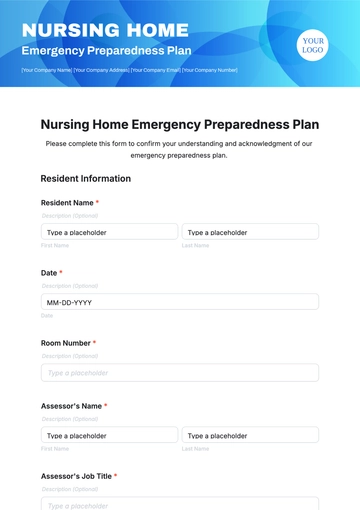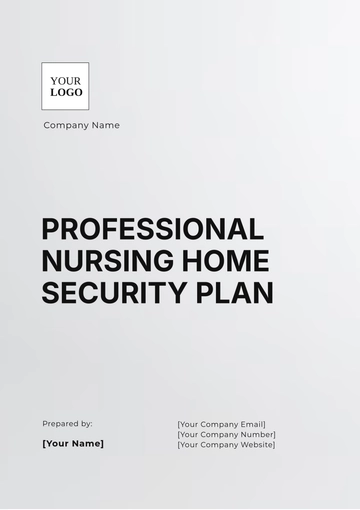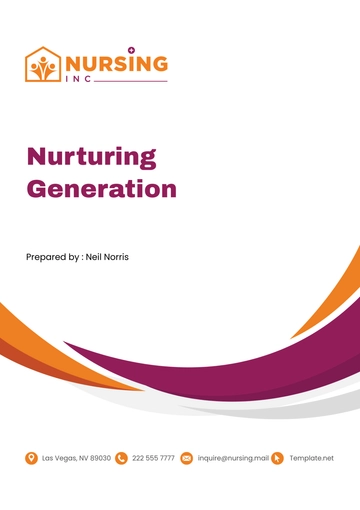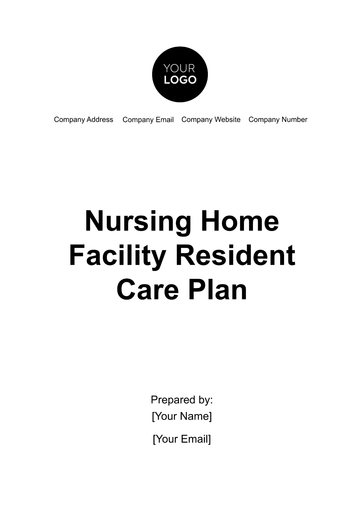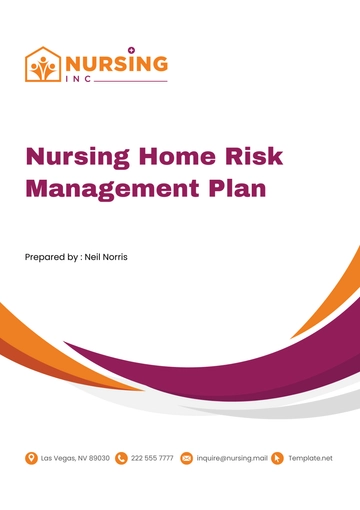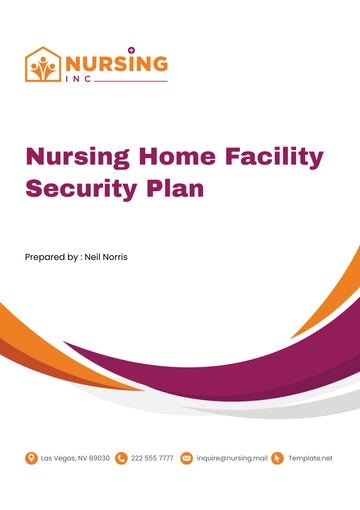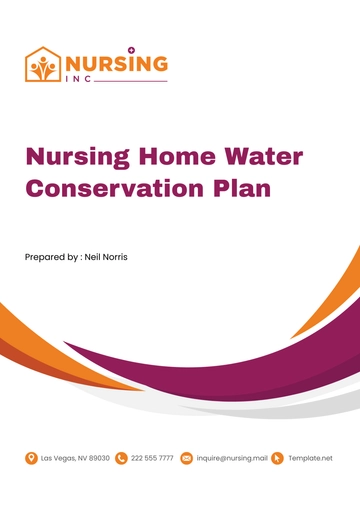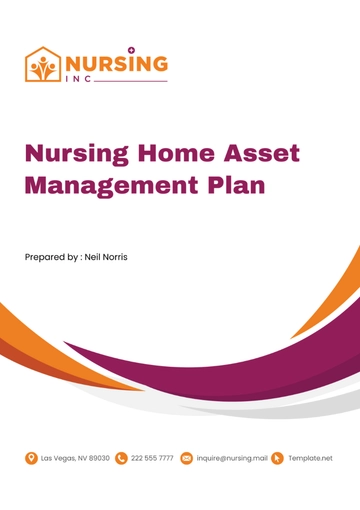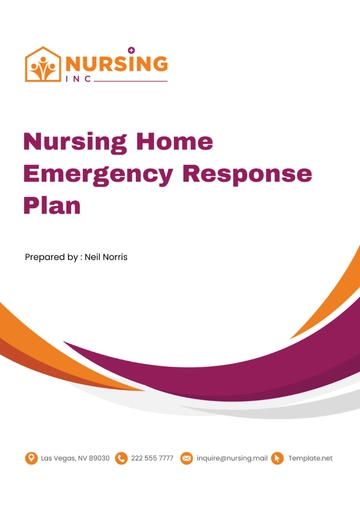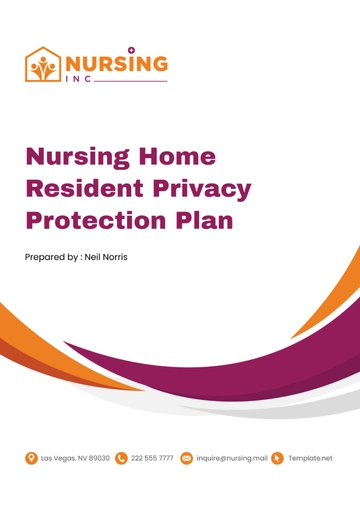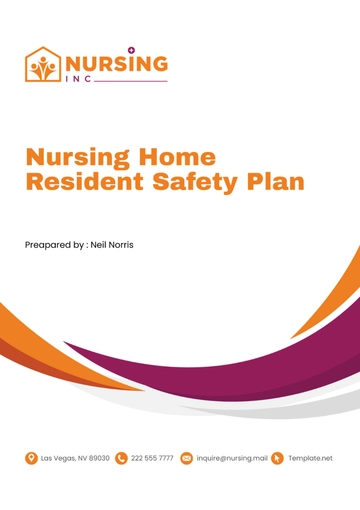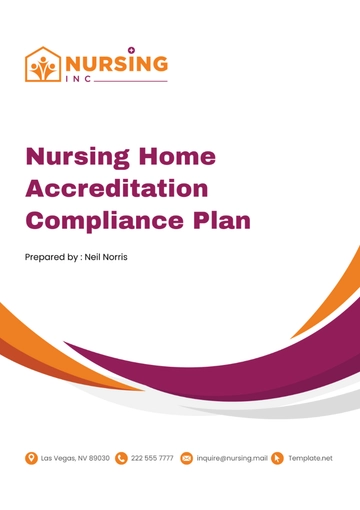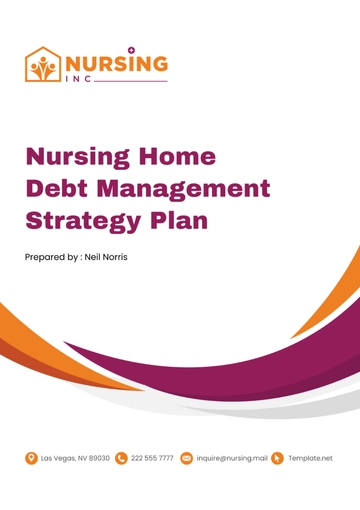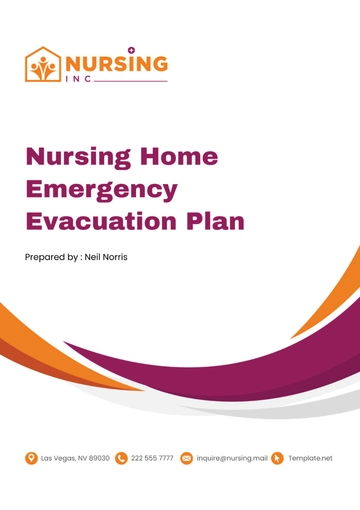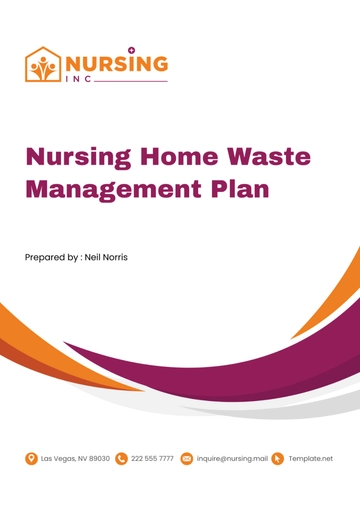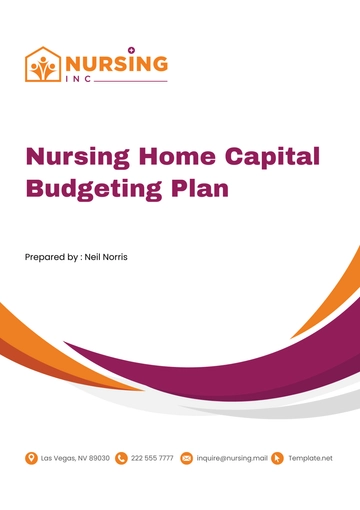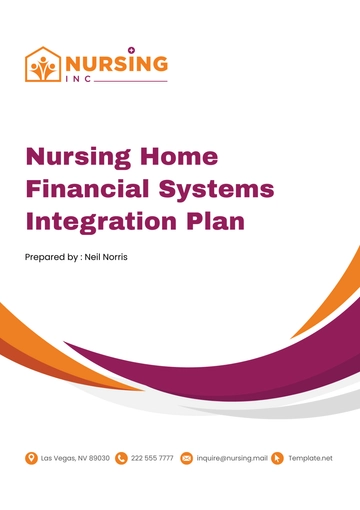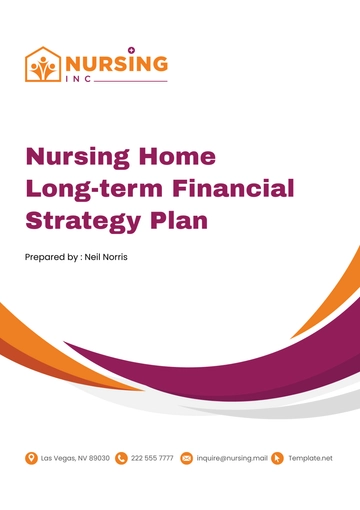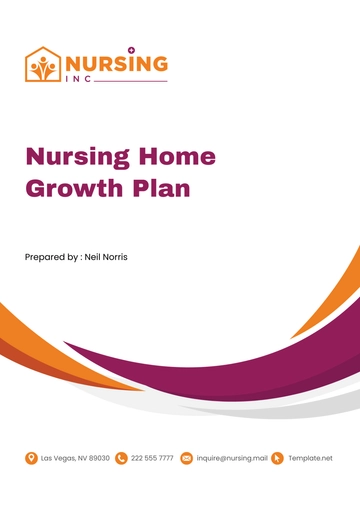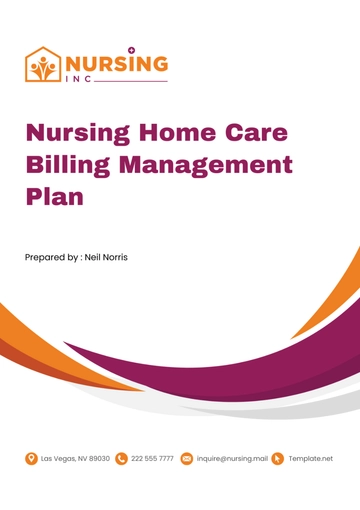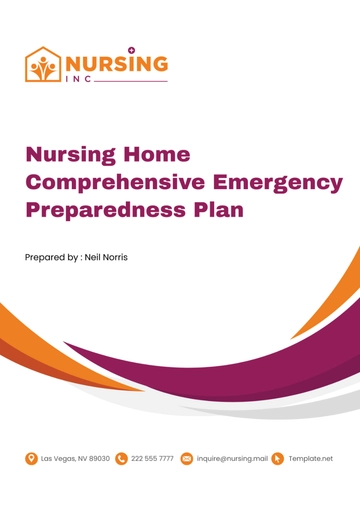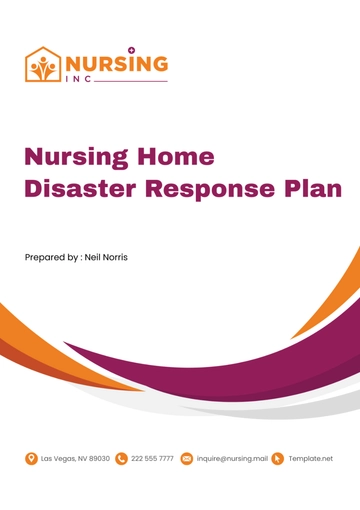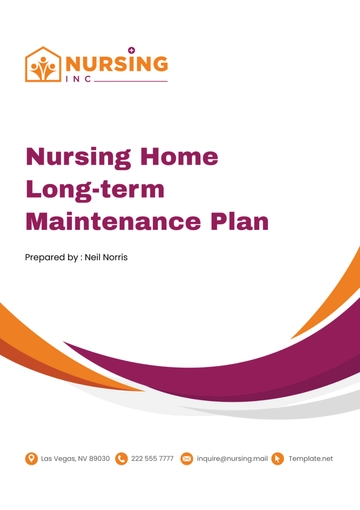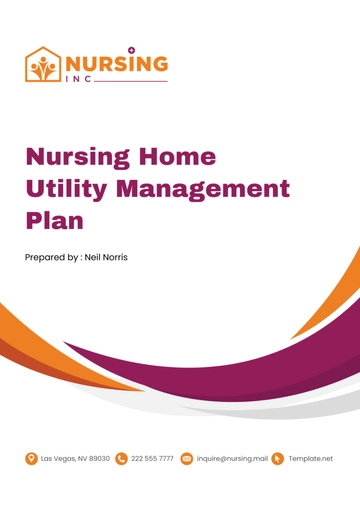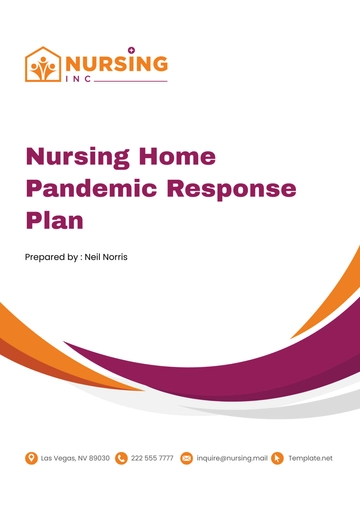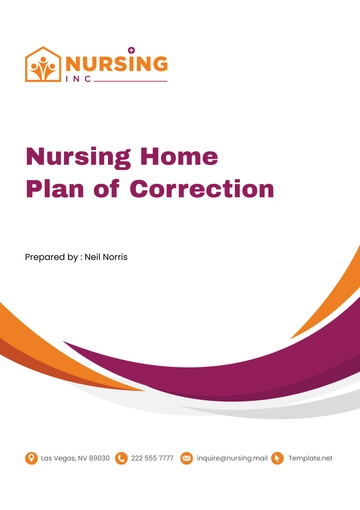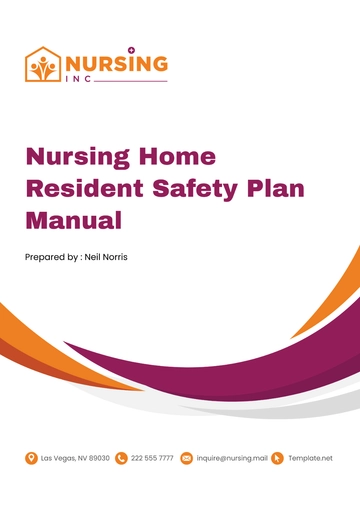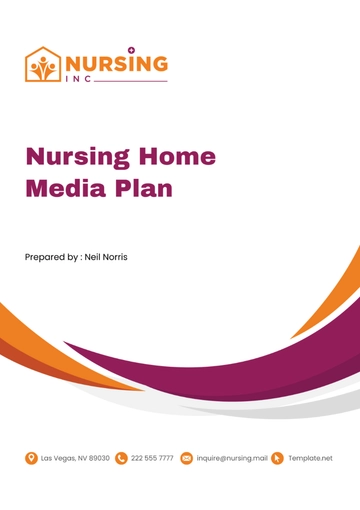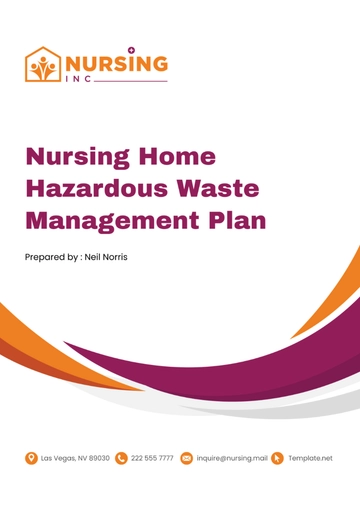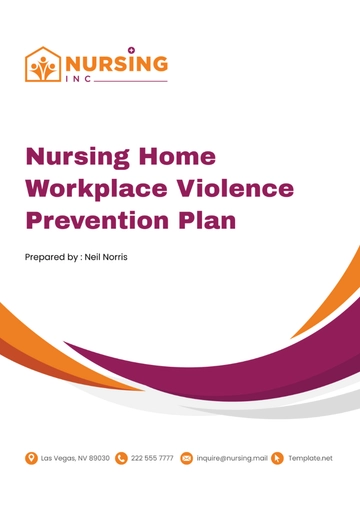Free Nursing Home In-Service Training Schedule and Content Plan
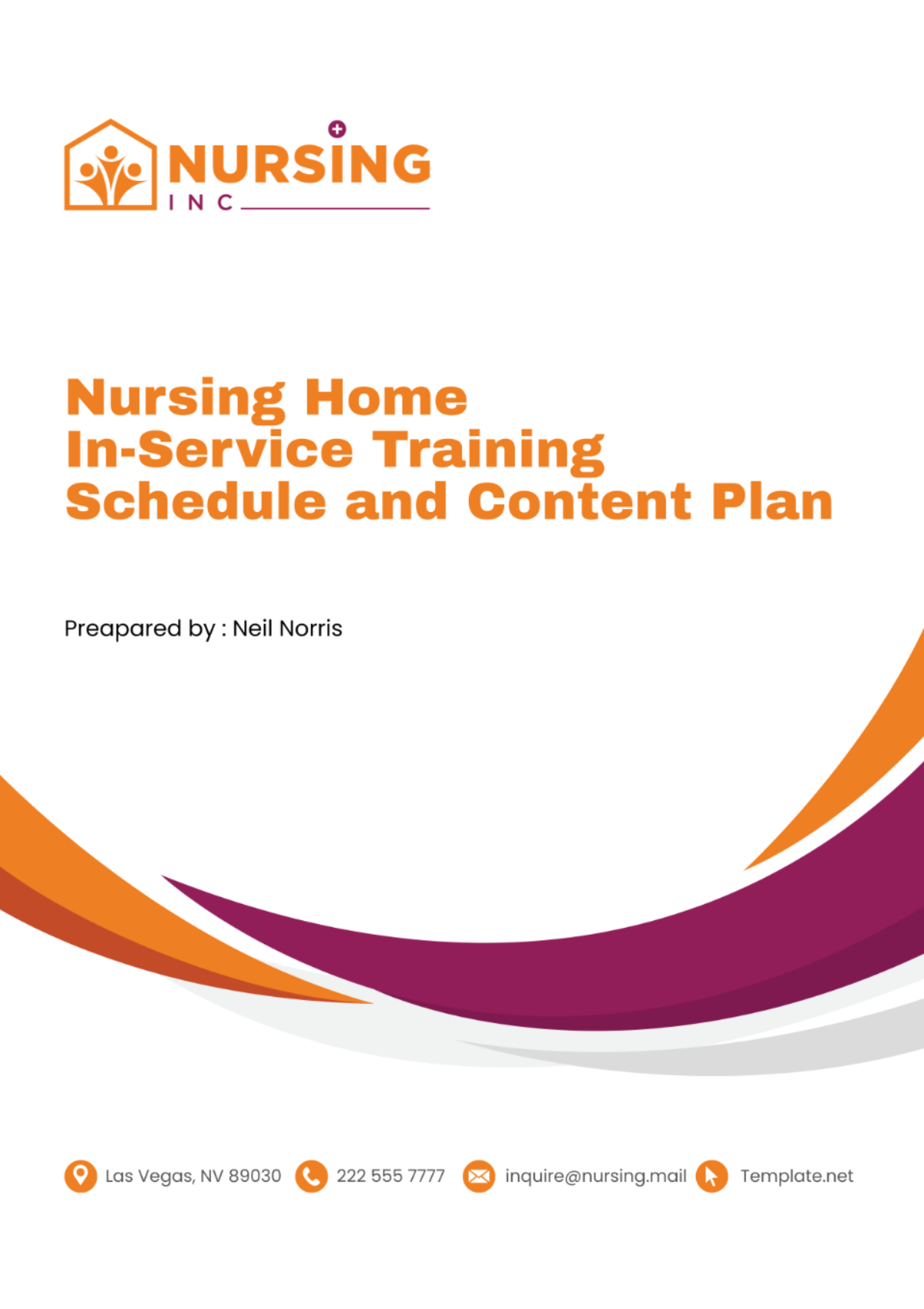
I. Introduction
In-service training plays a vital role in ensuring the quality of care provided at [Your Company Name]. This comprehensive training schedule and content plan aim to equip our nursing home staff with the necessary knowledge and skills to deliver excellent care to residents while maintaining regulatory compliance and safety standards.
II. Training Schedule
Month | Theme | Week 1 | Week 2 | Week 3 | Week 4 |
|---|---|---|---|---|---|
1 | Orientation and Basic Skills | Introduction to Policies | Resident Rights and Confidentiality | Infection Control and Prevention | Basic Nursing Skills |
2 | Safety and Emergency Preparedness | Fire Safety | Fall Prevention and Safe Handling | Emergency Response Training | Medication Safety |
3 | Communication and Interpersonal Skills | Effective Communication | Conflict Resolution | Cultural Competence | Documentation and Charting |
4 | Specialized Care and Procedures | Dementia Care | Wound Care | End-of-Life Care | Rehabilitation Techniques |
5 | Regulatory Compliance and Quality Improvement | Regulatory Overview | Quality Improvement Initiatives | Risk Management | Staff Development and CE Opportunities |
III. Content Plan
A. Month 1: Orientation and Basic Skills
Week 1: Introduction to Policies
In this session, new staff members will be introduced to the foundational policies and procedures of our nursing home facility. Understanding these policies is essential for providing quality care and ensuring regulatory compliance.
Overview of facility mission, values, and organizational structure.
Explanation of employee roles and responsibilities.
Introduction to key policies and procedures, including those related to resident care, safety, and documentation.
Week 2: Resident Rights and Confidentiality
Respecting the rights and privacy of our residents is paramount in maintaining their dignity and well-being. In this session, we'll explore the rights of residents and the importance of confidentiality in our interactions with them.
Discussion on resident rights as per regulatory guidelines.
Importance of respecting resident confidentiality and privacy.
Case studies to illustrate scenarios involving resident rights and confidentiality breaches.
Week 3: Infection Control and Prevention
Preventing the spread of infections is crucial in protecting the health of our residents and staff. This session will cover best practices in infection control and prevention to maintain a safe and healthy environment within our facility.
Understanding the principles of infection control.
Techniques for proper hand hygiene, cleaning, and disinfection.
Identifying common infections in nursing homes and preventive measures.
Week 4: Basic Nursing Skills
Mastering basic nursing skills is fundamental for providing competent and compassionate care to our residents. In this session, we'll focus on essential nursing skills such as vital signs measurement and assisting with activities of daily living.
Demonstration and practice of vital signs measurement.
Techniques for assisting with activities of daily living (ADLs) such as bathing, dressing, and feeding.
Safe transfer and mobility techniques for residents.
B. Month 2: Safety and Emergency Preparedness
Week 1: Fire Safety
Fire safety is everyone's responsibility. In this session, we'll review fire safety protocols and evacuation procedures to ensure the safety of our residents and staff in the event of a fire emergency.
Identifying fire hazards and evacuation procedures.
Proper use of fire extinguishers and evacuation routes.
Fire drill practice and debriefing.
Week 2: Fall Prevention and Safe Handling
Preventing falls and ensuring safe resident handling are key priorities in our facility. This session will explore strategies and techniques to minimize the risk of falls and promote safe handling practices for our residents.
Risk factors for falls in elderly residents.
Techniques for fall prevention and safe resident handling.
Use of assistive devices and equipment for mobility support.
Week 3: Emergency Response Training
Being prepared to respond effectively in emergencies can save lives. In this session, we'll provide training in basic life support techniques and first aid to equip our staff with the skills needed to handle emergency situations with confidence.
Basic life support techniques, including CPR and AED use.
First aid for common emergencies such as choking and cardiac arrest.
Role-playing scenarios to simulate emergency situations.
Week 4: Medication Safety
Administering medications safely is critical in preventing adverse drug events and ensuring resident well-being. This session will cover medication safety protocols and best practices to minimize the risk of medication errors.
Understanding medication administration protocols.
Prevention of medication errors and adverse drug reactions.
Importance of accurate documentation and reporting related to medication administration.
C. Month 3: Communication and Interpersonal Skills
Week 1: Effective Communication
Clear and empathetic communication is essential for building trusting relationships with our residents and colleagues. In this session, we'll explore strategies for effective communication to enhance resident care and satisfaction.
Strategies for clear and empathetic communication with residents and families.
Active listening techniques and verbal/non-verbal communication skills.
Role-playing exercises to practice effective communication in challenging situations.
Week 2: Conflict Resolution
Conflicts can arise in any workplace, but how we handle them can make a significant difference. In this session, we'll learn practical strategies for resolving conflicts professionally and maintaining a positive work environment.
Identifying common sources of conflict in nursing home settings.
Techniques for resolving conflicts professionally and peacefully.
Strategies for de-escalating tense situations and promoting harmony among residents and staff.
Week 3: Cultural Competence
Cultural competence is integral to providing person-centered care that respects the diversity of our residents. This session will focus on enhancing cultural awareness and sensitivity to better meet the needs of residents from diverse backgrounds.
Understanding the cultural backgrounds and beliefs of residents.
Cultural sensitivity training to avoid misunderstandings and promote inclusivity.
Case studies and group discussions on cultural competence in healthcare.
Week 4: Documentation and Charting
Accurate documentation is essential for maintaining continuity of care and ensuring regulatory compliance. In this session, we'll review documentation standards and best practices to ensure thorough and timely charting.
Importance of accurate and timely documentation in nursing practice.
Guidelines for charting resident assessments, care plans, and interventions.
Practice sessions on electronic health record (EHR) systems and documentation standards.
D. Month 4: Specialized Care and Procedures
Week 1: Dementia Care
Caring for residents with dementia requires specialized knowledge and skills. In this session, we'll explore strategies for providing person-centered care and managing behavioral symptoms associated with dementia.
Understanding dementia and its impact on residents and families.
Techniques for managing challenging behaviors associated with dementia.
Creating a dementia-friendly environment in the nursing home.
Week 2: Wound Care
Proper wound care is essential for promoting healing and preventing complications in residents with wounds. This session will cover wound assessment, treatment, and prevention strategies to optimize resident outcomes.
Principles of wound assessment, treatment, and prevention.
Hands-on practice of wound dressing techniques.
Prevention strategies for pressure ulcers and skin breakdown.
Week 3: End-of-Life Care
Providing compassionate end-of-life care is a profound responsibility of nursing home staff. In this session, we'll discuss principles and practices for supporting residents and families through the end-of-life journey with dignity and respect.
Providing compassionate care to residents nearing the end of life.
Supporting residents and families through the dying process.
Ethical considerations in end-of-life decision-making.
Week 4: Rehabilitation Techniques
Rehabilitation plays a vital role in maximizing functional independence and quality of life for our residents. In this session, we'll explore various rehabilitation techniques and the interdisciplinary approach to rehabilitation care.
Overview of rehabilitation modalities such as physical therapy, occupational therapy, and speech therapy.
Role of rehabilitation in promoting resident independence and functional ability.
Collaboration with interdisciplinary teams for comprehensive rehabilitation care.
E. Month 5: Regulatory Compliance and Quality Improvement
Week 1: Regulatory Overview
Understanding and complying with regulatory requirements are essential for maintaining the highest standards of care in our facility. In this session, we'll provide an overview of federal and state regulations governing nursing homes.
Understanding federal and state regulations governing nursing homes.
Compliance requirements related to resident care, safety, and documentation.
Consequences of non-compliance and strategies for maintaining regulatory adherence.
Week 2: Quality Improvement Initiatives
Continuous quality improvement is integral to achieving excellence in resident care. In this session, we'll explore quality improvement methodologies and initiatives aimed at enhancing resident outcomes and satisfaction.
Introduction to quality improvement methodologies such as Plan-Do-Study-Act (PDSA) cycles.
Identifying areas for improvement through resident satisfaction surveys and quality indicators.
Implementing and evaluating quality improvement initiatives to enhance resident outcomes.
Week 3: Risk Management
Identifying and mitigating risks are key components of ensuring resident safety and well-being. In this session, we'll discuss risk management strategies and protocols for minimizing potential hazards within our facility.
Recognizing potential risks and hazards in the nursing home environment.
Incident reporting protocols and documentation requirements.
Strategies for mitigating risks and promoting resident safety.
Week 4: Staff Development and CE Opportunities
Investing in staff development is essential for maintaining a competent and engaged workforce. In this session, we'll explore opportunities for continuing education and professional growth to support the ongoing learning and development of our staff.
Importance of ongoing education and professional development for nursing home staff.
Available resources for continuing education, including workshops, conferences, and online courses.
Creating a culture of learning and growth within the nursing home community.
IV. Conclusion
This in-service training schedule and content plan aim to provide a structured and comprehensive approach to staff development at [Your Company Name]. By addressing key themes such as orientation, safety, communication, specialized care, regulatory compliance, and quality improvement, we strive to empower nursing home staff with the knowledge and skills necessary to deliver exceptional care and support to residents. Ongoing evaluation and feedback will be essential to ensure the effectiveness and relevance of the training program in meeting the evolving needs of residents and the regulatory landscape.
- 100% Customizable, free editor
- Access 1 Million+ Templates, photo’s & graphics
- Download or share as a template
- Click and replace photos, graphics, text, backgrounds
- Resize, crop, AI write & more
- Access advanced editor
Plan comprehensive in-service training sessions for nursing home staff with Template.net's Nursing Home In-Service Training Schedule and Content Plan Template. Editable in our AI Editor Tool, this customizable template provides a structured format for organizing training schedules, topics, objectives, and materials to ensure staff development and compliance with regulatory requirements.
You may also like
- Finance Plan
- Construction Plan
- Sales Plan
- Development Plan
- Career Plan
- Budget Plan
- HR Plan
- Education Plan
- Transition Plan
- Work Plan
- Training Plan
- Communication Plan
- Operation Plan
- Health And Safety Plan
- Strategy Plan
- Professional Development Plan
- Advertising Plan
- Risk Management Plan
- Restaurant Plan
- School Plan
- Nursing Home Patient Care Plan
- Nursing Care Plan
- Plan Event
- Startup Plan
- Social Media Plan
- Staffing Plan
- Annual Plan
- Content Plan
- Payment Plan
- Implementation Plan
- Hotel Plan
- Workout Plan
- Accounting Plan
- Campaign Plan
- Essay Plan
- 30 60 90 Day Plan
- Research Plan
- Recruitment Plan
- 90 Day Plan
- Quarterly Plan
- Emergency Plan
- 5 Year Plan
- Gym Plan
- Personal Plan
- IT and Software Plan
- Treatment Plan
- Real Estate Plan
- Law Firm Plan
- Healthcare Plan
- Improvement Plan
- Media Plan
- 5 Year Business Plan
- Learning Plan
- Marketing Campaign Plan
- Travel Agency Plan
- Cleaning Services Plan
- Interior Design Plan
- Performance Plan
- PR Plan
- Birth Plan
- Life Plan
- SEO Plan
- Disaster Recovery Plan
- Continuity Plan
- Launch Plan
- Legal Plan
- Behavior Plan
- Performance Improvement Plan
- Salon Plan
- Security Plan
- Security Management Plan
- Employee Development Plan
- Quality Plan
- Service Improvement Plan
- Growth Plan
- Incident Response Plan
- Basketball Plan
- Emergency Action Plan
- Product Launch Plan
- Spa Plan
- Employee Training Plan
- Data Analysis Plan
- Employee Action Plan
- Territory Plan
- Audit Plan
- Classroom Plan
- Activity Plan
- Parenting Plan
- Care Plan
- Project Execution Plan
- Exercise Plan
- Internship Plan
- Software Development Plan
- Continuous Improvement Plan
- Leave Plan
- 90 Day Sales Plan
- Advertising Agency Plan
- Employee Transition Plan
- Smart Action Plan
- Workplace Safety Plan
- Behavior Change Plan
- Contingency Plan
- Continuity of Operations Plan
- Health Plan
- Quality Control Plan
- Self Plan
- Sports Development Plan
- Change Management Plan
- Ecommerce Plan
- Personal Financial Plan
- Process Improvement Plan
- 30-60-90 Day Sales Plan
- Crisis Management Plan
- Engagement Plan
- Execution Plan
- Pandemic Plan
- Quality Assurance Plan
- Service Continuity Plan
- Agile Project Plan
- Fundraising Plan
- Job Transition Plan
- Asset Maintenance Plan
- Maintenance Plan
- Software Test Plan
- Staff Training and Development Plan
- 3 Year Plan
- Brand Activation Plan
- Release Plan
- Resource Plan
- Risk Mitigation Plan
- Teacher Plan
- 30 60 90 Day Plan for New Manager
- Food Safety Plan
- Food Truck Plan
- Hiring Plan
- Quality Management Plan
- Wellness Plan
- Behavior Intervention Plan
- Bonus Plan
- Investment Plan
- Maternity Leave Plan
- Pandemic Response Plan
- Succession Planning
- Coaching Plan
- Configuration Management Plan
- Remote Work Plan
- Self Care Plan
- Teaching Plan
- 100-Day Plan
- HACCP Plan
- Student Plan
- Sustainability Plan
- 30 60 90 Day Plan for Interview
- Access Plan
- Site Specific Safety Plan
